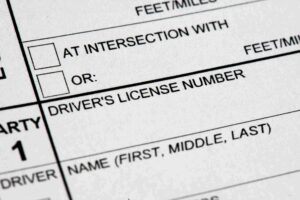If you’ve been involved in a car accident, you might wonder whether you can file an insurance claim without a police report in Connecticut.
The short answer is yes, it is possible to file a claim without a police report. However, it’s important to understand the laws and regulations in Connecticut surrounding car accidents and insurance claims, as well as the potential challenges you may face.
Connecticut Car Accident Laws and Regulations
In Connecticut, the law requires drivers to report any car accidents involving injury, death, or property damage exceeding $1,000 to the police within five days of the incident. Failure to do so can result in fines and penalties.
The police report can be evidence of any insurance claim or legal action related to the accident.
However, if the accident involves only property damage and no injuries, and the parties involved agree to exchange information, a police report may not be necessary.
In this case, drivers should exchange contact and insurance information, take photos of the damage, and notify their insurance companies as soon as possible.
Filing an Insurance Claim Without a Police Report
If you’ve been involved in a car accident in Connecticut and don’t have a police report, you can still file an insurance claim.
Your insurance company will likely ask for the details of the accident, including the date, time, location, and any other relevant information. You’ll also need to provide information about the other driver, such as their name, contact information, and the insurance company.
Your insurance company may investigate the accident by speaking to witnesses, reviewing photos and video footage, and assessing the damage to your vehicle. They may also request a statement from you and the other driver involved in the accident.
Challenges of Filing a Claim Without a Police Report
Filing a claim without a police report can be challenging, as there may be discrepancies in the details of the accident. Without an official police report, it may be more difficult to determine who was at fault and whether any traffic violations were committed.
Insurance companies may also be more skeptical of claims without police reports, as they may suspect fraud or exaggeration. This can lead to delays in processing your claim or a lower settlement offer. Having
Statute of Limitations for Filing a Claim
In Connecticut, the statute of limitations for filing a personal injury claim is two years from the accident date. This means that if you were injured in a car accident, you have two years from the accident date to file a claim for compensation.
If you miss this deadline, you may lose your right to seek compensation for your injuries.
It’s important to note that the statute of limitations for property damage claims differs.
In Connecticut, the statute of limitations for property damage claims is three years from the accident date. If you miss this deadline, you may not be able to recover damages for your property damage.
Seeking Legal Help
If you’ve been involved in a car accident in Connecticut and are having trouble filing an insurance claim, you may want to seek legal help.
An experienced Connecticut auto accident attorney can help you navigate the complex laws and regulations surrounding car accidents and insurance claims and can advocate for your rights and interests.
An attorney can also help you gather evidence to support your claim, negotiate with insurance companies, and represent you in court if necessary. With the help of an attorney, you may be able to recover compensation for your medical expenses, lost wages, pain and suffering, and other damages related to the accident.
Contact Jonathan Perkins Injury Lawyers for Help with Your Claim
It is possible to file an insurance claim without a police report in Connecticut, but it may be more challenging. If you’ve been involved in a car accident, it’s important to exchange information with the other driver and notify your insurance company immediately.
Contact our legal team at Jonathan Perkins Injury Lawyers to schedule a free consultation to discuss your situation and claim.

